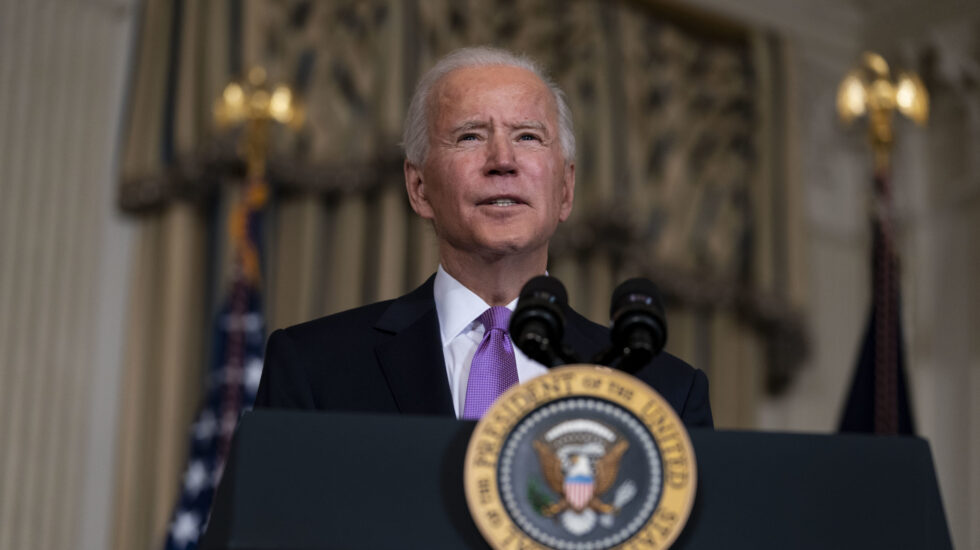On Friday, President Joe Biden unveiled his $1.52 trillion budget proposal. In the process, he revealed his administrations priorities: improving education, investing in public health, and fighting climate change.
Biden is targeting funding increases in areas he campaigned heavily on, including a $20 billion boost for schools in low-income areas, the creation of a $6.5 billion medical research program with a focus on cancer, and a $14 billion increase in funds across the federal government to tackle climate change.
If adopted by Congress, Biden’s budget would represent a 16% increase over current funding levels for domestic programs. The outline he presented – a so-called “skinny budget” – only covers discretionary spending, which accounts for about a quarter of total federal expenditures. It is on top of the trillions already requested for infrastructure investments.
The Environment Protection Agency – which had its budget slashed under the Trump administration – is a big winner under Biden’s plan. The EPA would receive an additional $2 billion, bringing its annual budget to $11.2 billion.
The Center for Disease Control and Prevention would also receive a significant lift, with its budget expanding to $8.7 billion. That’s a $1.6 billion increase from the previous year – the largest spike in two decades.
The Head Start program would also get a substantial bump – $1.2 billion more than last year for a total of $11.9 billion. The federal program provides early childhood education for low-income families.
Likewise, Title I grants for high-poverty schools would increase by a staggering $20 billion, more than doubling the current funding level. The Biden administration says that’s the largest year-over-year increase to the Title I program since its inception under President Lyndon B. Johnson.
All in all, Biden’s requesting $769 billion in non-defense programs for the upcoming fiscal year, which starts in October. Defense spending – at a proposed $753 billion – would also receive a modest increase of 1.7%.
Biden’s proposed defense budget is likely to anger both progressives and Republicans. Senator Bernie Sanders (I-Vt.) has called for a 10% cut in Pentagon spending. Republicans, on the other hand, have long prioritized national defense and are unhappy with a defense budget that barely tracks with inflation.
The New York Times notes that Biden’s skinny budget earmarks increased funding for border control, but his approach contrasts with that of his predecessor.
The budget also reflected the increasing sense of urgency within the Biden administration to deter migration to the southern border, including $1.2 billion toward investing in border security technology, such as sensors to detect illegal crossings and tools to improve entry ports. It is also notable for what it does not include: No new funding for border wall construction — a commitment Mr. Biden had made.



